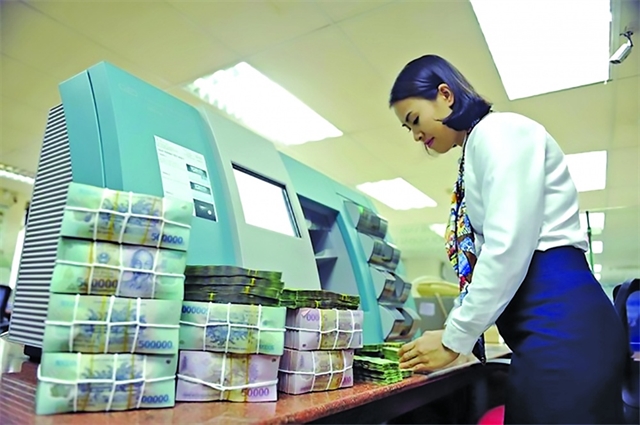 Economy
Economy

 |
| A bank teller counts money at a transaction office in Hà Nội. For banks, attracting a high proportion of non-term deposits is very important, because it creates a cheap source of capital. — VNA/VNS Photo |
HÀ NỘI — Banks have been given favourable conditions to increase CASA (Current Account Savings Account), or non-term deposits, as interest rates of term deposits have continued to decrease.
CASA is a demand deposit and has very low interest rates. Last year when interest rates for term deposits were high, many customers transferred their idle money in their bank accounts to term deposits to enjoy higher interest rates. Now, due to the low interest rates of term deposits, they do not pay much attention to the transfer, making the CASA ratio in commercial banks higher.
For banks, attracting a high proportion of non-term deposits is very important, because it creates a cheap source of capital. Normally, the interest rates of non-term deposits are much lower than term deposits, being only 0.1-0.3 per cent per year.
According to experts, the high CASA ratio will create a premise for banks to improve their net interest margin (NIM) while keeping the lending rates at competitive levels in the market.
Banks, therefore, are promoting to lure CASA to benefit from the low-cost capital source.
Top 3 CASA ratios last year were MB Bank, Techcombank and Vietcombank and the ranking is forecast to remain unchanged this year. Techcombank’s CASA surged by 37 per cent compared to the beginning of this year, from VNĐ132.5 trillion to VNĐ181.5 trillion, while MB Bank's CASA also increases by 16.4 per cent, from VNĐ180.2 trillion to VNĐ228.1 trillion.
According to banking expert Nguyễn Trí Hiếu, as CASA is characterised by instability because customers can withdraw their non-term deposits at any time, banks, especially small-sized ones, must focus on improving their services to lure non-term deposits so as to increase their CASA rate.
"If a bank does not focus on developing digital services to enable it to connect with more ecosystems to serve the diverse needs of customers, they will either automatically choose another bank with better services, or withdraw their money to invest in other channels. At that time, the bank’s CASA will decline,” Hiếu said. — VNS




